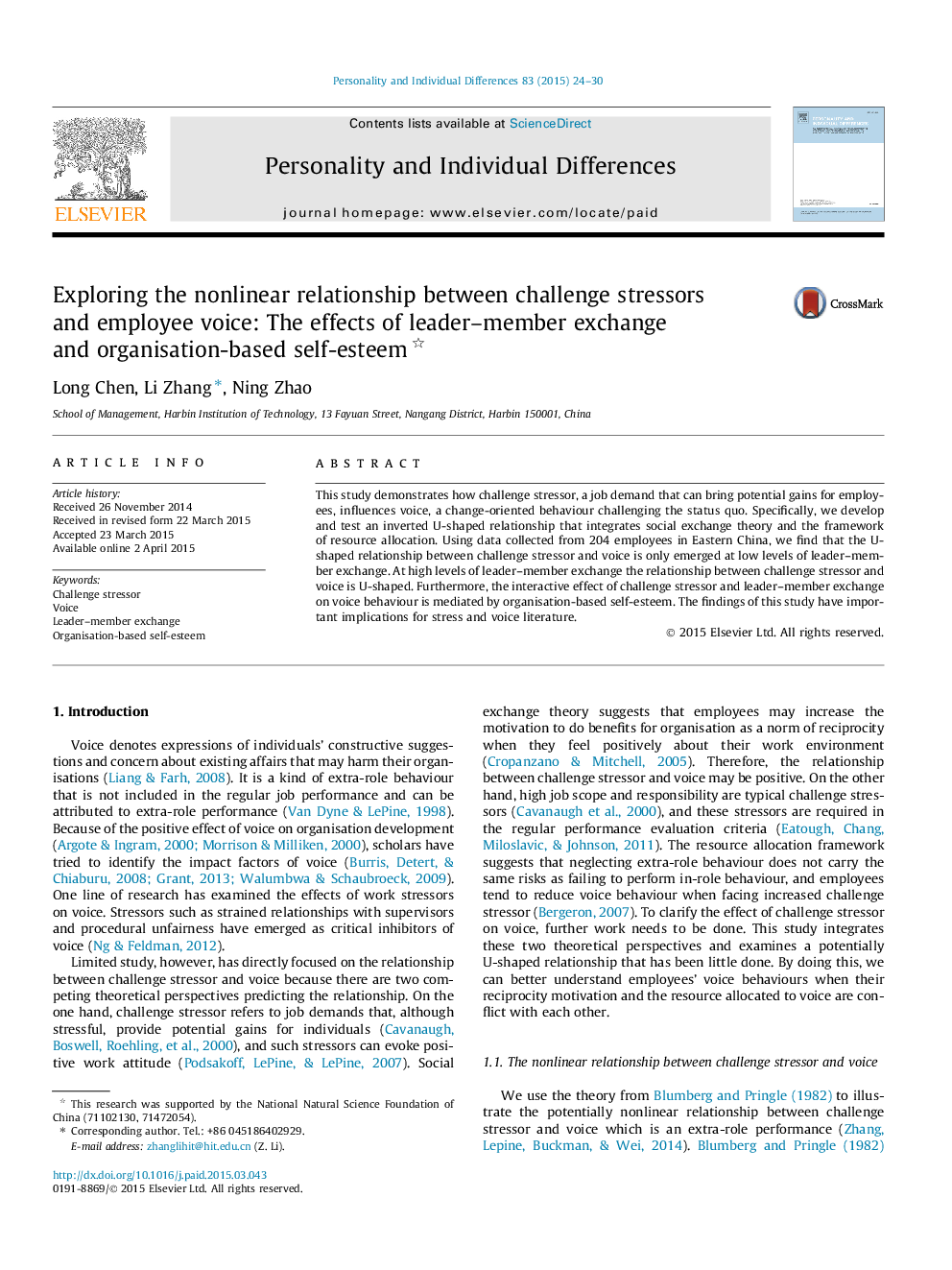| Article ID | Journal | Published Year | Pages | File Type |
|---|---|---|---|---|
| 890127 | Personality and Individual Differences | 2015 | 7 Pages |
•We explain the quadratic relationship between challenge stressor and voice.•Leader–member exchange can moderate the relationship between challenge stressor and voice.•The mediating role of organisation-based self-esteem can be moderated by leader–member exchange.
This study demonstrates how challenge stressor, a job demand that can bring potential gains for employees, influences voice, a change-oriented behaviour challenging the status quo. Specifically, we develop and test an inverted U-shaped relationship that integrates social exchange theory and the framework of resource allocation. Using data collected from 204 employees in Eastern China, we find that the U-shaped relationship between challenge stressor and voice is only emerged at low levels of leader–member exchange. At high levels of leader–member exchange the relationship between challenge stressor and voice is U-shaped. Furthermore, the interactive effect of challenge stressor and leader–member exchange on voice behaviour is mediated by organisation-based self-esteem. The findings of this study have important implications for stress and voice literature.
